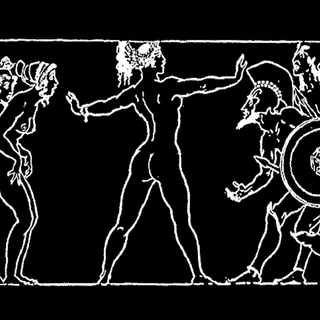Women who drink are judged more severely than men who drink revealed a new study from researchers at the Worcester Polytechnic Institute (WPI), the University of Nebraska and Iowa State University, with both men and women describing women with alcoholic drinks as “less human” than women holding water bottles.
The study, titled “She Looks Like She’d Be an Animal in Bed: Dehumanization of Drinking Women in Social Contexts” and published in the May issue of the journal Sex Roles, reveals the biased way society looks at women who drink in social settings, the New York Times reported.
The experiments depicted a young person at a bar holding either a bottle of beer or bottle of water. In some images, the young person was a man, in others, the young person was a woman. Across all the experiments, the 398 participants (men and women with an average age of 34) were asked to assess how drunk they thought the person in the picture appeared, and how human the person was. Participants were also asked whether they viewed the women to be “single or open to having casual sex.”
On average, when participants saw a woman holding a beer bottle, they believed she had “less human” characteristics than participants who saw a woman holding a water bottle. There was no similar difference in participants’ views of a man holding a beer bottle compared to a water bottle.
Both men and women regard women drinking alcohol as “less human” and more “sexually available” compared to men who drank, concluded Jeanine Skorinko, a professor of social science and policy studies at WPI and one of the co-authors of the study.
Related on The Swaddle:
Gurgaon Clubs Deny Entry to Women Without a Husband After Crackdown on Prostitution
The researcherssay their findings suggest that people may be less likely to offer help to a woman who’s been drinking and appears involved in a “risky situation” because they might assume that she’s interested in “casual sexual behavior,” the New York Times reported.
The findings in all three experiments had “troubling implications,” Skorinko told the New York Times; the study revealed perceptions of women who choose to drink that may increase the willingness of others to be sexually aggressive towards them.
Skorinko’s study is the first of its kind; no similar, previous research exists and certainly not in an Indian context. But the clues are there; in early 2018, Goa’s Chief Minister, Manohar Parrikar, faced fire after reportedly saying, “I have begun to fear now because even the girls have started drinking beer … the tolerance limit is being crossed.” This provoked women on social media to post pictures of themselves with their respective drinks under the hashtag #GirlsWhoDrinkBeer. Parrikar later claimed his quote was taken out of context. Still, he’s far from the only one suggesting women’s consumption of alcohol is exceptional in a negative way — which hints at biases similar to those revealed in Skorinko’s study.




